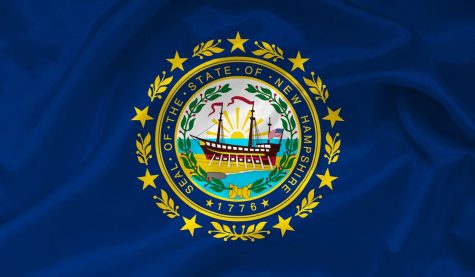We are well on the road to the 2020 election and several key events will help dictate which candidate from the Democratic Party will be on the ballot against President Trump in November.
The first of these events is the Iowa caucus which took place on Monday night. Candidates have been visiting the state to raise money and win over voters since the Iowa State Fair in August.
Just eight days after the Iowa caucus is the first primary of the election cycle, which is in New Hampshire.

Why are these two events so important in modern politics?
Statistics show that those who perform well in Iowa and New Hampshire are likely to carry the momentum through the election. Only two candidates since the first Iowa caucus in 1972 have placed outside the top three at the event and gone on to win the nomination – Bill Clinton (1992) and John McCain (2008).
Most importantly, the winners of the events usually receive a large boost in media coverage, leading to more support from voters. This is especially significant when looking at fundraising for caucus winners.
With the winners gaining momentum and likely immediately becoming the front-runner, the first major voting events of the election cycle should occur in states that are as closely representative of the country as possible. Iowa and New Hampshire are not that:
| United States | Iowa | New Hampshire | |
| White | 72.2% | 90.2% | 92.4% |
| Black or African American | 12.7% | 3.6% | 1.7% |
| Asian | 5.6% | 2.5% | 2.7% |
| Two or more races | 3.4% | 2.2% | 2.2% |
| Native American | 0.9% | 0.9% | 0.3% |
| Hawaiian/Pacific Islander | 0.2% | 0.1% | 0.0% |
Statistics pulled from the Census Bureau.
Both states grossly under-represent minorities.
Political attitudes and voting preferences are often correlated with race. According to the Pew Research Center’s analysis of exit polls from the 2018 midterms, the best predictor of which way a person will vote is race.
On top of this, Iowa has some of the strictest disenfranchisement laws in the country. If found guilty of a felony, Iowans have no chance to regain their right to vote after serving time.
Despite only 3.6% of Iowa’s population being black, there are 11 black people in prison for every one white person, per The Sentencing Project. Additionally, 2.17% of the state’s population is disenfranchised but almost 10% of the black population has permanently lost the right to vote.
Minority votes, especially those from the black population, will be crucial for the Democrats if they want a chance of winning in 2020. With candidates like Pete Buttigieg and Elizabeth Warren receiving a lower percentage of the black vote than others such as Joe Biden and Bernie Sanders, states with larger white populations can possibly change who wins an election (i.e. Pete Buttigieg coming close to winning in Iowa).
Race isn’t the only important demographic where the entire country should be represented. Age, income and education level are all major factors in shaping the way people vote.
| United States | Iowa | New Hampshire | |
| Median age | 37.7 | 38.1 | 42.6 |
| % with Bachelor’s Degree | 29.3 | 26.4 | 34.4 |
| Median Household Income | $53,482 | $52,716 | $65,986 |
Although rural Iowa has a slightly lower bachelor’s degree rate than the rest of the country, the state represents the country well in terms of age and income, but New Hampshire falls flat in all of them. New Hampshire is older and wealthier than the rest of the country.
Finding a representative sample of the country at the beginning of the process is crucial, as it can dictate the course of the entire election. Iowa is too rural and New Hampshire is too rich and educated. Neither represent minorities well and New Hampshire favors the upper-middle class and wealthy more than the rest of the country.
__
For more information or news tips, or if you see an error in this story or have any compliments or concerns, contact opinions@unfspinnaker.com.











